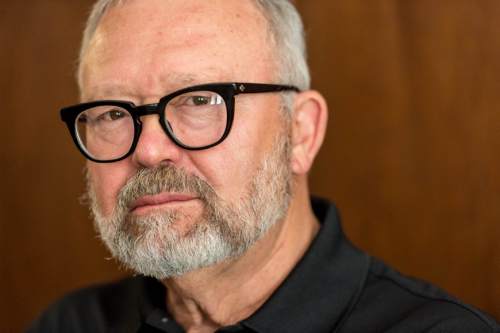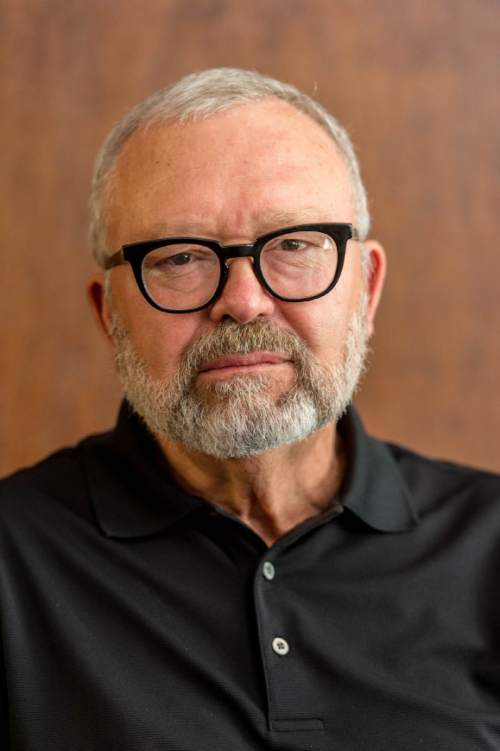This is an archived article that was published on sltrib.com in 2014, and information in the article may be outdated. It is provided only for personal research purposes and may not be reprinted.
Saying he is "perplexed" by the FBI's failure to provide a timely report on a witness tampering allegation, a federal judge has scheduled a hearing for Thursday in Salt Lake City for the bureau to argue why it should not be found in contempt.
At the hearing, U.S. District Judge Clark Waddoups also wants the FBI and Salt Lake City attorney Jesse Trentadue — who is suing the agency over records he requested about the Oklahoma City bombing — to discuss the possibility of having a court-appointed special master oversee compliance with court orders in the case.
The tampering claim came up during a four-day bench trial in July on a lawsuit Trentadue filed in 2008 claiming the FBI had failed to conduct a search reasonably calculated to locate all records in the bureau's possession that he requested under the Freedom of Information Act (FOIA). The agency has responded that it conducted an "exhaustive" search; Waddoups took the case under consideration and has yet to rule.
On the second day of trial, Trentadue said he had just learned one of his witnesses, John Matthews, was backing out of testifying. According to court documents, Matthews planned to testify that he believed the FBI was monitoring bomber Timothy McVeigh in the run up to the 1995 detonation at the Murrah Building in Oklahoma City — information that Trentadue believes the agency wants to suppress.
Trentadue alleges that Matthews — who he describes as a former undercover operative for the government — was threatened by the FBI with the loss of his disability and other veteran benefits if he took the stand. Department of Justice attorneys, who are representing the FBI, denied any coercion and argued an email Matthews sent to them saying he was not threatened settled the matter.
However, Waddoups disagreed the issue was resolved and scheduled a hearing for Thursday to hear testimony on the allegation. He also ordered the FBI to investigate any communications between the bureau and Matthews and submit a report to the court far enough in advance of the hearing so Trentadue could prepare subpoenas, if necessary.
Waddoups noted the DOJ attorneys had said they planned to file the report on Nov. 3 — 10 days before the scheduled hearing — but had not done so, leaving Trentadue with inadequate time to issue subpoenas. In an order issued Thursday, the judge postponed testimony on whether there has been witness tampering and said the upcoming hearing will be devoted to the contempt and special master issues.
The DOJ attorneys responded that the investigation, which was done by the FBI, took longer than expected but the report has been completed and filed. In a motion filed Friday, they asked Waddoups to cancel Thursday's hearing, arguing that because the FBI conducted the probe and submitted the report as ordered, "no contempt order is warranted, nor is there any need to appoint a special master."
In addition, they asked Waddoups to find that an evidentiary hearing on the tampering allegation is unnecessary. The information contained in the report "makes clear that no witness tampering occurred and that there is no basis to conduct any further proceedings on this matter," according to the motion.
In an affidavit attached to the motion, retired agent Don Jarrett says Matthews, who he has known since about 1992, called him in early July to say that he did not want to testify. Jarrett says he had not heard of the case and suggested that Matthews contact the FBI's attorney in the case.
Matthews then contacted the Salt Lake City office four times and talked to Special Agent Adam Quirk, who was the person assigned to handle incoming calls the day of the first call, the motion says. Matthews said he had been asked to testify in a trial involving the Oklahoma City bombing but did not intend to appear unless subpoenaed, Quirk said in an affidavit.
"I was not familiar with any trial matching Mr. Matthews' description," Quirk said. "I was not sure why Mr. Matthews was contacting the Field Office, but I simply confirmed that, in order for him to be required to testify, he would have to be served with a subpoena."
Quirk said Matthews called three more times saying Trentadue wanted him to testify but that he did not want to.
Three of the four calls and two voice mail messages that Matthews left for Quirk were recorded and they "irrefutably demonstrate that it was Mr. Matthews who initiated contact with the Salt Lake Field Office and that SA Quirk did not threaten or attempt to discourage Mr. Matthews from testifying," the motion says.
Trentadue believes the records he requested will provide information about the death of his brother in a federal prison in Oklahoma City a few months after the April 19, 1995, bombing that killed 168 people.
The death of Kenneth Trentadue was ruled a suicide, but his family believes he was mistaken for a bombing conspirator and killed in a police interrogation that got out of hand. Federal officials deny the allegation.
Twitter: @PamelaMansonSLC







